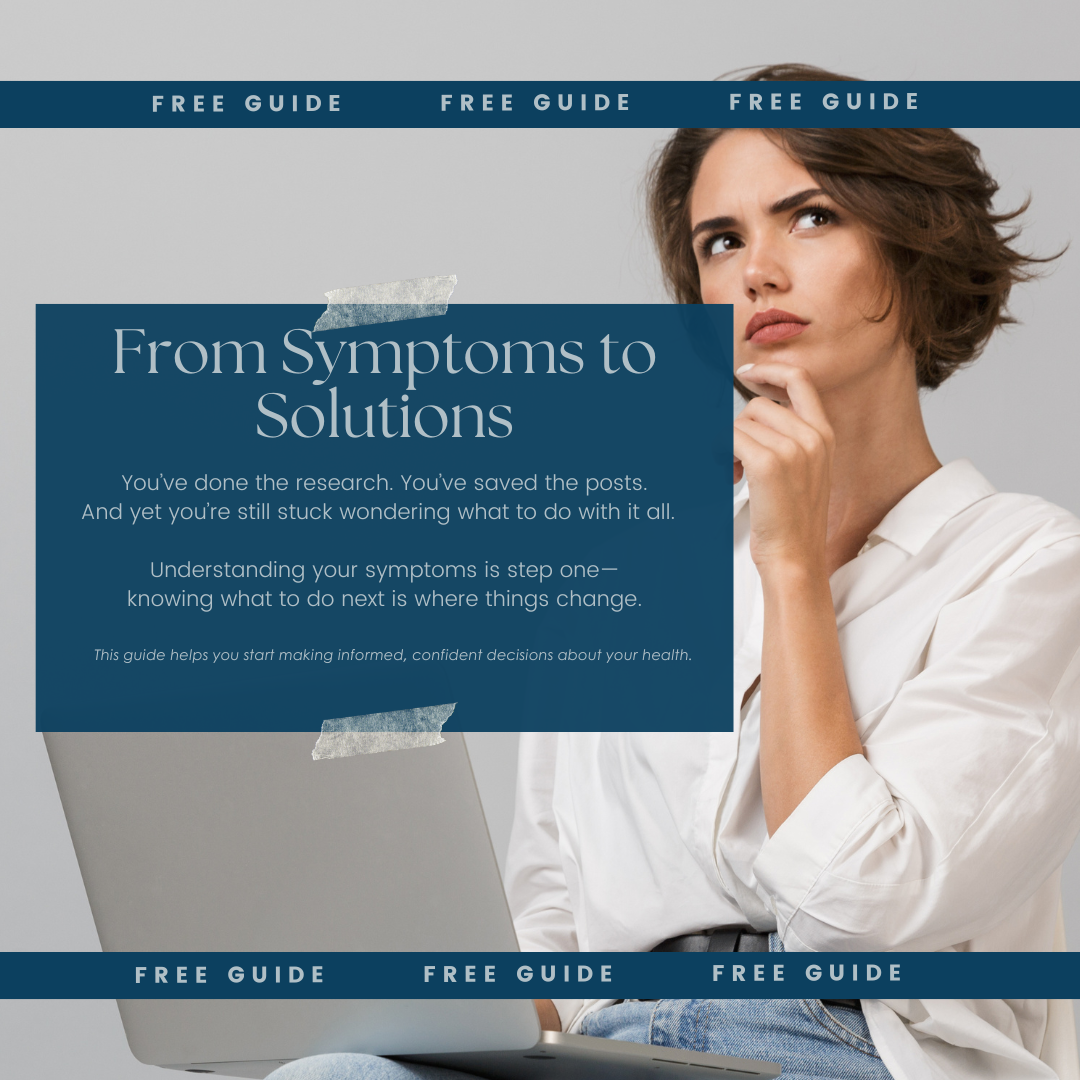Lifestyle Foundations During Menopause: Build Your Health Brick by Brick
Jun 15, 2025
Navigating menopause is a journey that challenges women in various ways—physically, emotionally, and mentally. Lifestyle factors such as sleep, stress, self-care, and mental health are the bricks of a strong foundation for health and wellness, especially during menopause. When these elements are compromised, it’s harder to make the changes necessary to thrive during this phase of life.
Let’s explore why these factors are essential and practical ways to strengthen them.
Sleep: Your Body’s Reset Button
Sleep affects everything—hormones, mood, energy, pain tolerance, and even cognitive function. Yet, around 40–60% of menopausal women experience sleep disturbances. Whether it’s falling asleep, staying asleep, or waking up drenched in night sweats, sleep issues can make every other menopause symptom feel worse.
During menopause, sleep difficulties stem from:
- Hot flashes and night sweats.
- Anxiety and mood disorders.
- Hormonal shifts affecting melatonin production.
- Chronic stress or life transitions like caregiving or career changes.
Why Sleep Matters:
Without adequate sleep:
- You’re more likely to experience heightened anxiety and mood swings.
- Recovery from workouts slows, and training progress may stall.
- Hormonal imbalances worsen, making it harder to manage weight.
Action Steps to Improve Sleep:
- Create a Ritual: Develop a calming bedtime routine, such as reading, stretching, or listening to soothing music.
- Optimize Your Environment: Keep your bedroom cool, dark, and free of distractions.
- Sleep Hygiene: Avoid caffeine, heavy meals, and screen time close to bedtime.
- Breathing Practices: Incorporate diaphragmatic breathing or meditation to calm the nervous system.
Stress: The Hidden Multiplier of Menopause Symptoms
Stress during menopause is not just emotional; it’s physiological. High cortisol levels from chronic stress exacerbate many menopause symptoms, including:
- Weight gain, especially around the midsection.
- Increased hot flashes.
- Insomnia and anxiety.
- Gut health issues and immune system dysregulation.
Types of Stress:
- Acute Stress: Short-term, triggered by immediate challenges.
- Chronic Stress: Ongoing, linked to life transitions like caring for aging parents, adjusting to an empty nest, or preparing for retirement.
Why It Matters:
When unmanaged, stress can accelerate aging, lead to muscle and bone loss, and even increase the risk of chronic illnesses like cardiovascular disease and diabetes.
Stress Management Tips:
- Daily Stress Dumps: Journal or write down what’s weighing on you.
- Mindfulness and Meditation: Simple techniques like box breathing (inhale for 4, hold for 4, exhale for 4) can significantly reduce cortisol levels.
- Simplify Life: Delegate tasks or set boundaries to reduce unnecessary stressors.
Self-Care: A Lifeline, Not a Luxury
Self-care during menopause isn’t about indulgence—it’s about survival. Many women struggle to prioritize themselves after decades of caregiving and managing life’s responsibilities.
What Is Self-Care?
It’s any action that supports your physical, mental, or emotional well-being. This can include:
- Eating nutrient-dense foods.
- Staying hydrated.
- Scheduling routine health checkups.
- Engaging in activities that bring joy.
- Setting boundaries with toxic relationships.
Why It’s Vital:
Self-care builds resilience. It creates a buffer against the stresses and physical challenges of menopause, ensuring you’re better equipped to handle whatever life throws your way.
Ideas for Immediate Self-Care:
- Movement: Gentle yoga, walking, or strength training.
- Nutrition: Focus on fiber-rich foods, omega-3s, and magnesium.
- Social Connection: Spend time with supportive friends or join a community.
Building a Stronger Foundation Today for a Better Tomorrow
Balancing immediate needs with long-term health is the ultimate self-care act. Many women envision their future selves as having more energy, motivation, or time—but the choices you make today pave the way for that reality.
By prioritizing sleep, managing stress, and practicing self-care, you’re not only addressing today’s challenges but also investing in a healthier, more vibrant future.
Take Action: Pick one area—sleep, stress, or self-care—and commit to small, consistent changes. These shifts, though seemingly minor, can transform your menopause journey and help you thrive during this chapter of life.
What’s Your Next Step?
If menopause feels like a full-time job, you’re not alone. But you don’t have to navigate it without a plan. My Navigating Menopause health tracking journal is your personalized roadmap—designed to help you track symptoms, set meaningful goals, and build the healthy habits that support long-term wellness.
Stay connected with news and updates!
Join our mailing list to receive the latest news and updates from our team.
Don't worry, your information will not be shared.
We hate SPAM. We will never sell your information, for any reason.


